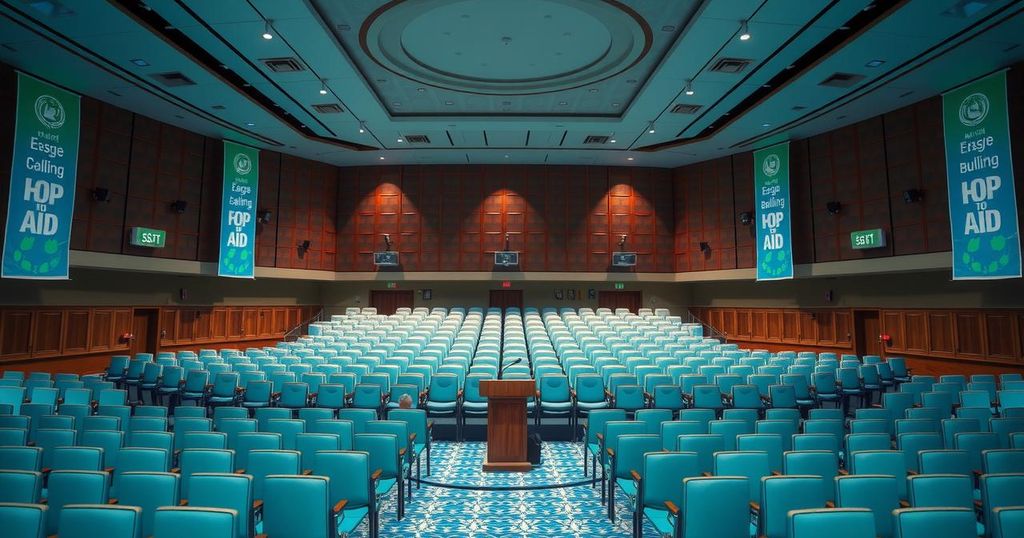European Nations Pledge Billions in Aid for Syria’s Reconstruction

European countries have pledged nearly $6.5 billion to aid in the rebuilding of Syria after prolonged civil war. This aid includes grants and low-interest loans, meant to support infrastructure and foster political transition. Notably, funds will be directed to Syria’s new leadership rather than the previous regime, highlighting a significant change in the approach to international assistance. Key figures emphasized the necessity for collaborative efforts and shared responsibility in addressing Syria’s extensive rebuilding needs.
European nations have pledged nearly $6.5 billion to support the reconstruction of Syria following over 14 years of civil war. The commitment was announced during the 9th International Conference in Support of Syria, held at the European Council headquarters in Brussels. This package includes $4.6 billion in grants and approximately $1.7 billion in low-interest loans; however, this total is less than the previous year’s pledge of $8.1 billion.
The financial aid is aimed at assisting Syria’s new leadership in rebuilding damaged infrastructure and fostering a peaceful political transition. Previously, aid was directed towards neighboring countries housing Syrian refugees rather than the Assad regime. The current allocation marks a shift, as funds will now be directly given to the newly established government in Syria.
Ursula von der Leyen, the President of the European Commission, emphasized the new collaborative approach, stating, “In the past, we have worked for Syria and for Syrians. Today, we can finally work with Syria. The future of Syria is for all Syrians to build.” According to World Vision, the ongoing conflict has displaced approximately 14 million individuals, with 16.7 million still in need of humanitarian aid within Syria, where poverty affects 90% of the population.
The reconstruction of Syria is expected to incur costs ranging between $250 billion to $400 billion. Ahmed al-Shara, the new leader of Syria, has called for international support to address the pressing challenges. In a recorded message, UN Secretary-General António Guterres affirmed the UN’s commitment to help create a nation founded on reconciliation and justice for all Syrians.
Violence against minority communities, including Alawites and Christians, continues to pose a challenge, casting doubt on the government’s commitment to protect these groups. Syrian Foreign Minister Asaad Hassan al-Shaibani reassured conference participants that aid would be distributed equitably among various communities and emphasized a commitment to addressing the rights and needs of all citizens.
This year’s conference marks the first instance of Syrian authorities participating in the annual gathering. In terms of financial contributions, Germany leads as the largest donor with a commitment of $326 million, while the UK has pledged up to $208 million. The U.S., traditionally a major donor, has not announced any new funding commitments.
U.S. Deputy Assistant Secretary Natasha Franceschi conveyed, “We will continue to provide certain assistance in line with U.S. policies and laws, but we also now expect that other nations are going to help shoulder the financial burden.” Furthermore, EU Crisis Management Commissioner Hadja Lahbib highlighted the necessity of shared responsibility among nations, stating, “We will need to share the burden.”
In conclusion, the international community, particularly European nations, is stepping forward to aid Syria’s reconstruction with a significant financial commitment aimed at fostering a peaceful transition. However, challenges remain, including the protection of minority rights and the vast economic needs of the country. The shift in aid strategy towards direct support for Syria’s new government represents a crucial change in the dynamics of international assistance. Collaboration and shared responsibility among nations will be essential in addressing the enormous challenges that lie ahead for the Syrian people.
Original Source: allisrael.com








